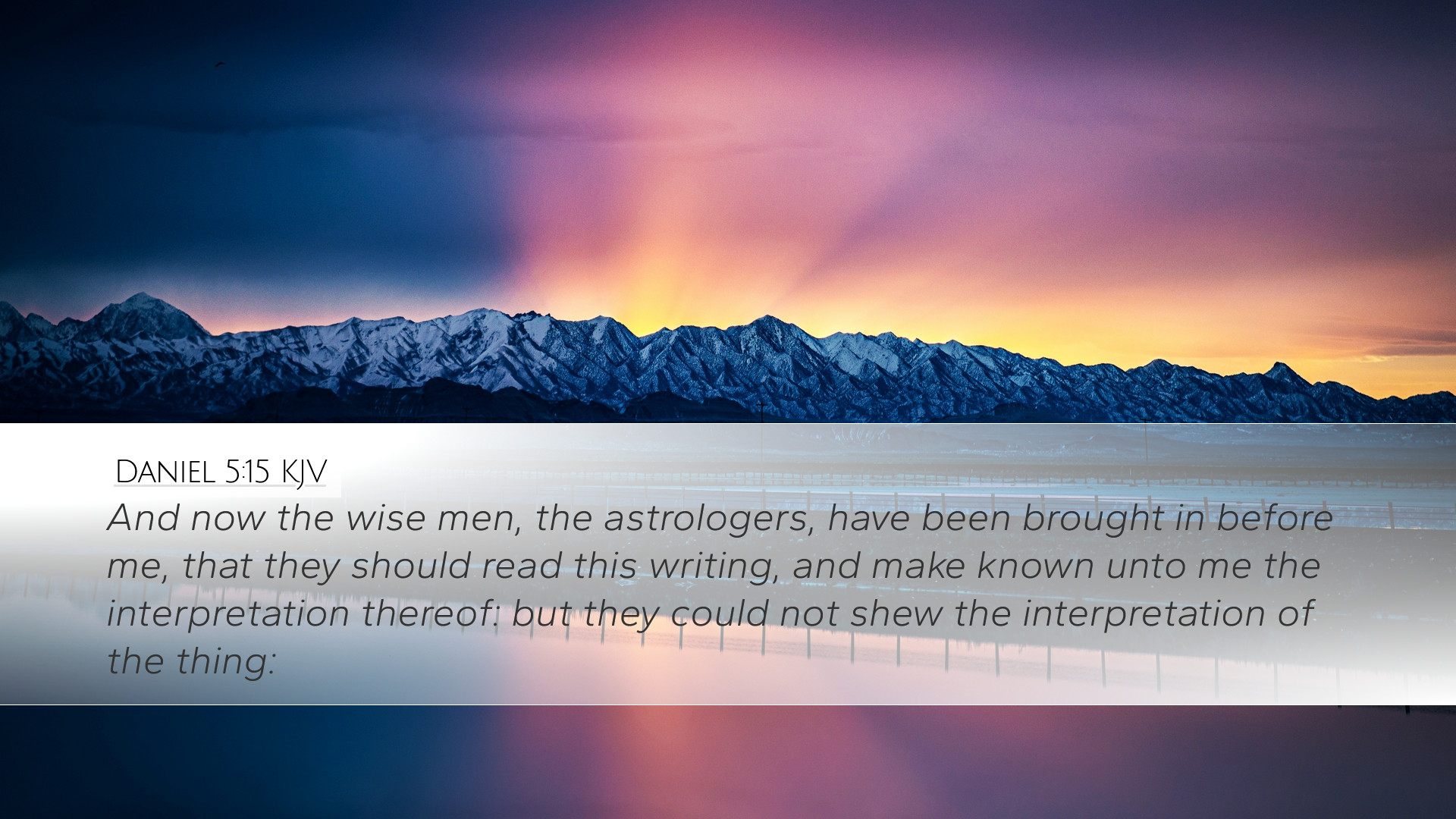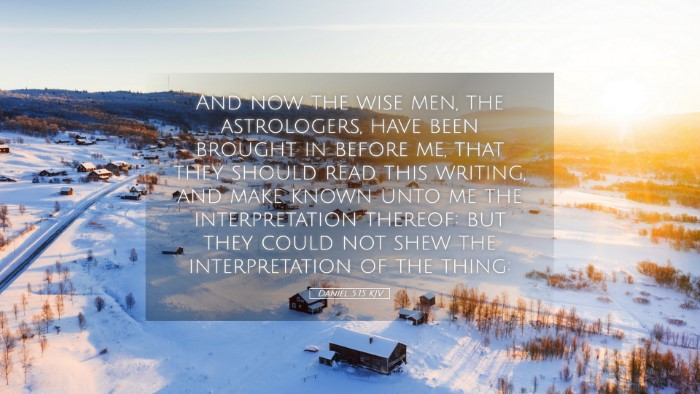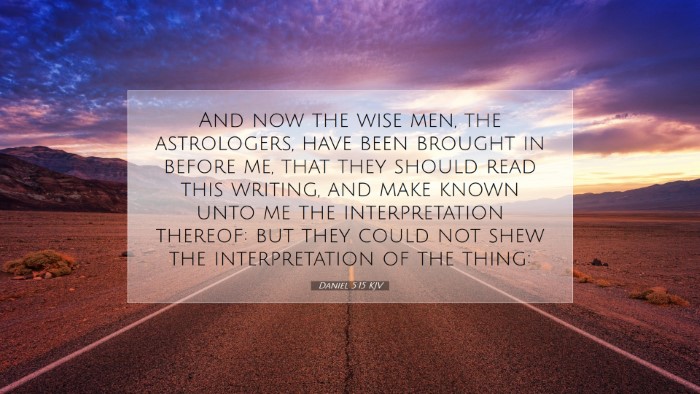Commentary on Daniel 5:15
Daniel 5:15 states, "And now the wise men, the astrologers, have been brought in before me, that they should read this writing, and make known unto me the interpretation thereof: but they could not show the interpretation of the thing." This verse presents a poignant moment in the biblical narrative, revealing the limitations of human wisdom in confronting divine revelation.
Contextual Background
This chapter occurs during a feast held by King Belshazzar, a scenario laden with themes of pride, blasphemy, and impending judgment. The king's decision to summon the wise men of Babylon reflects the continued reliance on human wisdom, despite its previous failures. It is essential to recognize that this event takes place in a historical context where Babylonian astrology held significant prestige.
Human Limitations and Divine Authority
Matthew Henry notes that the wise men, despite their learned status, were powerless against the spiritual realities being unveiled before them. Belshazzar’s reliance on them illustrates a recurring biblical theme: human wisdom is ultimately inadequate when facing the divine.
Henry also emphasizes that the failure of these wise men to interpret the writing is not merely an individual failure but signifies a broader commentary on the insufficiency of secular knowledge and the inevitability of divine truth breaking through.
The Role of Divine Revelation
Albert Barnes accentuates that this moment serves a dual purpose: it showcases the futility of the king’s trusted advisors and sets the stage for Daniel’s entrance as a divinely appointed interpreter. This situation invites contemplation on the importance of seeking true knowledge, which stems from a relationship with God rather than solely from human intellect.
Contrast to Previous Chapters
In previous chapters, Daniel himself had been the one to interpret dreams and visions, providing guidance and understanding through divine insight. The failure of Babylon's wise men in this instance heightens the contrast between God's wisdom and the folly of relying solely on the wisdom of man.
Implications for Leadership
Adam Clarke points out that Belshazzar’s summons of the wise men signifies a leader’s potential reliance on flawed counsel. This is a powerful message for current leaders who often look to human advisors, forgetting the ultimate authority that comes from God. Clarke encourages leaders to align their decisions with divine wisdom, recognizing that true understanding and effective leadership come from seeking God's guidance.
Theological Reflections
- Human Ingenuity vs. Divine Revelation: The impotence of Belshazzar's wise men invites a theological reflection on the limitations of human ingenuity when confronted with God's sovereign will.
- Faith in the Divine: The need for prophetic insight underscores the belief that knowledge and wisdom are gifts from God, and they should be sought after in humility.
- The Response of Belshazzar: It raises questions about how we respond when faced with the limits of our understanding — do we turn to God, or do we seek other ways to fill the void?
Conclusion
In summary, Daniel 5:15 encapsulates a critical moment of revelation, one that serves as a reminder of the superiority of divine insight over human wisdom. The failure of Belshazzar's wise men and their inability to interpret the divine message illustrates a broader theological truth about reliance on God. Pastors, students, and scholars alike can take away the importance of seeking divine understanding in areas where human wisdom falls short. As we engage with the text, may we aspire to be Daniel-like figures who are willing to enter into the places where God's wisdom is needed, being equipped not by human accolades but by the Spirit of God.


